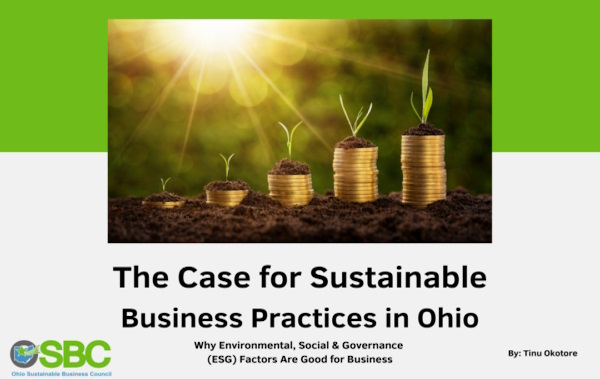By Zach Bernstein
The debate over whether climate change is real is essentially settled. Now the question is, what are we going to do about keeping temperatures from rising out of control?
Here’s one idea: Support a carbon tax.
This might seem odd, especially given the name, but carbon taxes are becoming more and more popular. Boulder, Colorado, was the first jurisdiction to pass one in 2006. States like Massachusetts and Washington are vying to be the first to enact plans. More and more businesses include internal carbon prices (PDF) as well.
But action at the federal level has been slow. While business groups also have been slow to support this, the American Sustainable Business Council (ASBC) is taking the lead on calling for a carbon tax. We even invited two leaders on this issue — Sen. Sheldon Whitehouse (D-RI) and former Rep. Bob Inglis (R-SC) — to speak at our Fourth Annual Business Summit last year in Washington, D.C.
Their point was clear: In order to actually pass a carbon tax, the business community will need to get involved.
The main point of discussion was a bill introduced by Whitehouse and Sen. Brian Schatz (D-HI) in June, the American Opportunity Carbon Fee Act. The bill would set a $45/ton price on carbon emissions beginning in 2016, then rise two percent a year. It would include border price adjustments, so that products imported from countries without a carbon tax still would have the U.S. tax applied.
The tax would be revenue-neutral: It would reduce the top marginal corporate tax rate to 29 percent (something Whitehouse defended as the best method to win bipartisan support); give Americans inflation-adjusted $500 tax credits; and provide financial support for low-income and rural households, as well as workers transitioning to new industries, including those in coal-dependent communities.
Whitehouse argued that even those communities would benefit over the long run; for all the claims of a “war on coal,” market forces, not government action, actually are wreaking havoc on the industry, and there’s little indication that will change. For a state like Ohio, which gets most of its energy from coal but features exploration in both the Marcellus Shale and the Utica Shale, this is a potential crisis waiting to happen.
All of this may make a carbon tax seem like a great idea. Unfortunately, there’s a lot of resistance from a few sectors – namely the fossil fuel industry – which means to see any movement on this, the rest of the business community will need to step up.
As Whitehouse remarked, more business involvement can offer members of Congress “safe passage through the political minefield – the shelling they anticipate from the fossil fuel industry.”
If the argument against climate action is that it will be bad for business, show Congress that businesses are more concerned about the costs of inaction on climate change. Or, as Inglis argued, point to the growing number of companies, including oil companies, that are instituting an internal price on carbon – the best proof yet that businesses are prepared for legislative action and any burdens can be handled.
Inglis, who ultimately lost his seat for supporting climate action, earned a standing ovation at the end of the panel. While that was a heartening response from our business attendees, it doesn’t have to be that way. If more businesses get involved on policies like this from the beginning, policymakers can take a stand on climate change without having to worry about losing their seats.
That’ll mean more and faster action. And when it comes to climate change, we can’t afford to wait any longer.
Zach Bernstein is the Manager of Research and Social Media at the American Sustainable Business Council.
ShareDiscover more from Ohio Sustainable Business Council
Subscribe to get the latest posts sent to your email.



